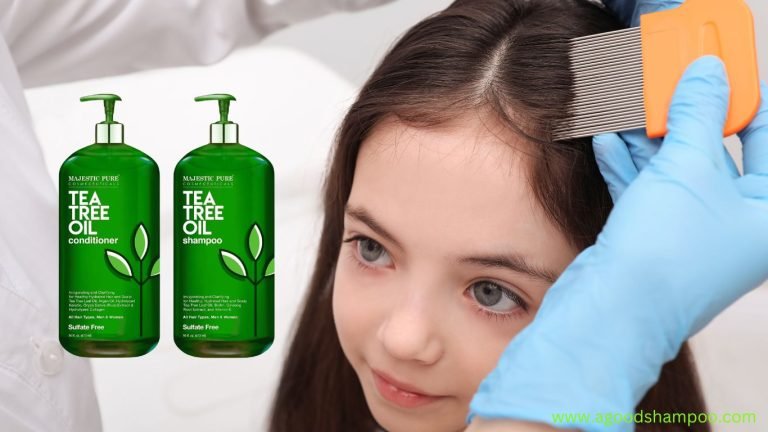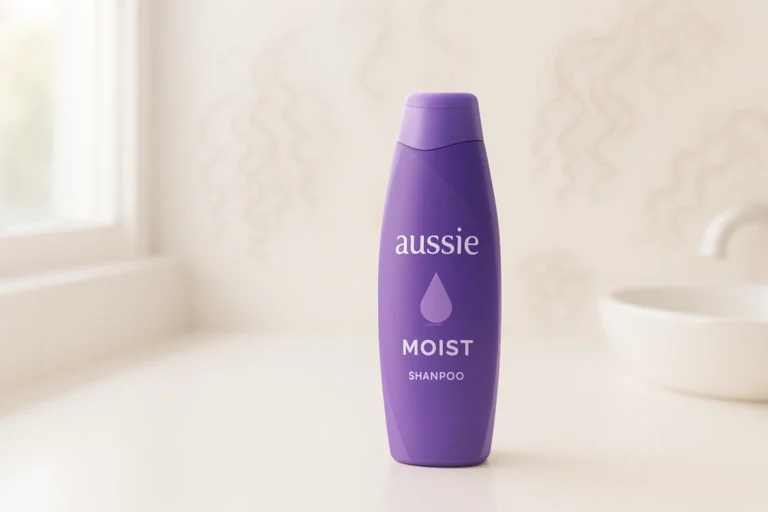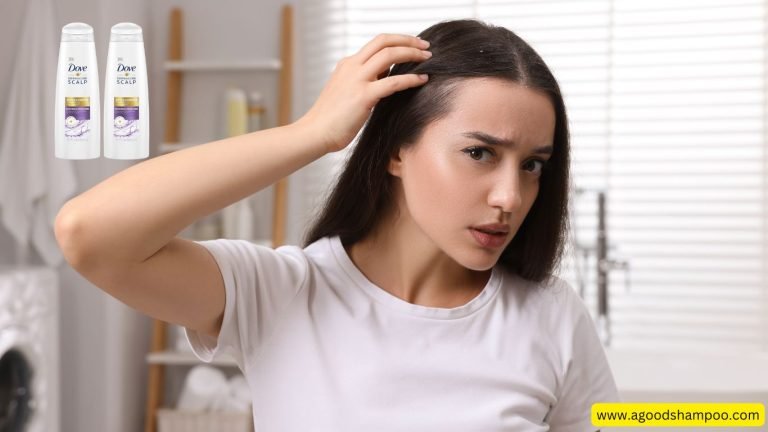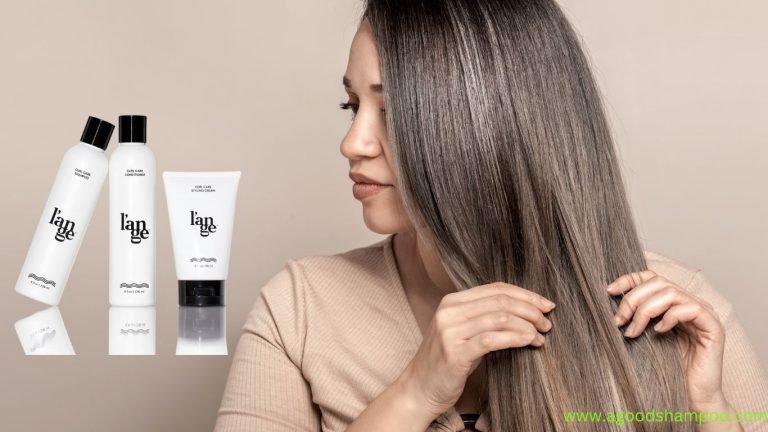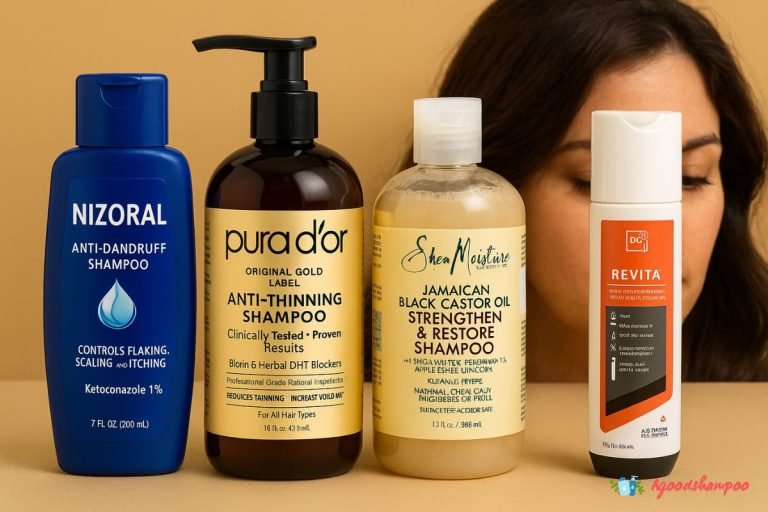Is Coconut Oil Shampoo Good For Dry Scalp? An Honest Review
I’ve lost count of how many people have asked me this one question in my salon chair: “Carolina, is coconut oil shampoo actually good for my dry scalp, or is it just hype?”
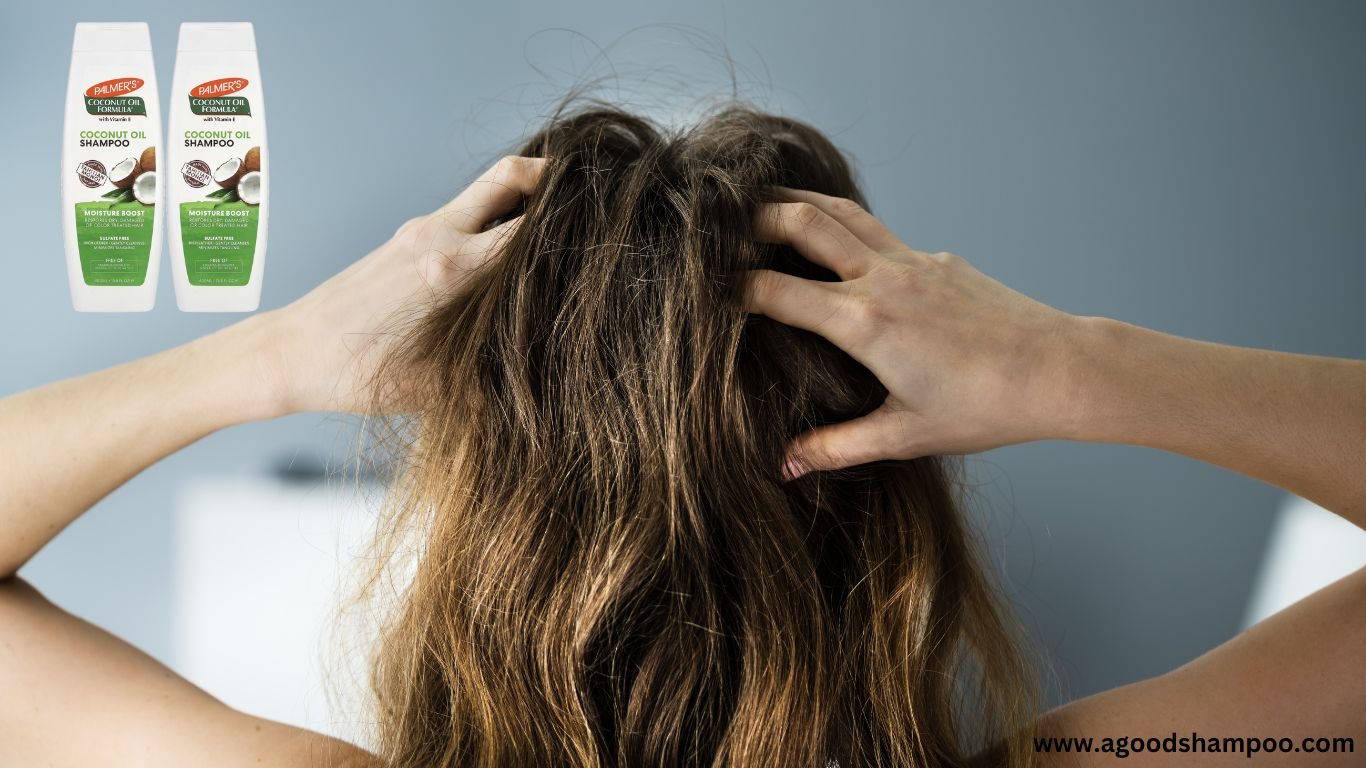 It’s an important question because if you’re struggling with that itchy, flaky, tight feeling on your scalp, the last thing you want is to grab the wrong shampoo and make it worse. Coconut oil is often marketed as this miracle cure for all hair problems, hydration, shine, even dandruff. But is coconut oil shampoo really the best fix for a dry scalp?
It’s an important question because if you’re struggling with that itchy, flaky, tight feeling on your scalp, the last thing you want is to grab the wrong shampoo and make it worse. Coconut oil is often marketed as this miracle cure for all hair problems, hydration, shine, even dandruff. But is coconut oil shampoo really the best fix for a dry scalp?
Let’s break this down together, science, real-world use, and my own testing. I’ll share where coconut oil shampoo shines, where it falls short, and how you can use it safely if your scalp feels more like the Sahara desert than healthy skin.
Why Dry Scalp Happens in the First Place
Before we even talk coconut oil, let’s pause and figure out why your scalp is dry. Because “dry scalp” isn’t always caused by the same thing.
Weather & Climate: Winter air, central heating, and low humidity strip your scalp of moisture.
Harsh Shampoos: Sulfates and strong detergents pull out natural oils, leaving skin tight and flaky.
Skin Conditions: Eczema, psoriasis, or seborrheic dermatitis mimic dry scalp but behave differently.
Over-Washing: Shampooing daily without conditioning can dehydrate the scalp.
Lifestyle & Diet: Not drinking enough water or lacking fatty acids in your diet can show up on your skin, including the scalp.
So if you want relief, the first step is identifying what’s actually causing your dryness. Sometimes the answer is simple (switching shampoos), other times it’s medical (seeing a dermatologist).
Coconut Oil: What Makes It Special?
Coconut oil isn’t just a trendy kitchen staple. It’s a unique oil with properties that make it stand out in beauty care.
Ingredient Breakdown:
Lauric Acid (about 50% of the oil): This fatty acid penetrates deep into hair shafts and also has antimicrobial properties.
Caprylic & Capric Acid: Soothing and lightweight emollients that calm irritation.
Vitamin E & K: Natural antioxidants that support skin repair.
Moisture-Locking Barrier: Coconut oil creates a thin film over the skin that prevents water loss.
What Research Says:
A study in the Journal of Cosmetic Science found that coconut oil actually penetrates the hair shaft better than mineral oil or sunflower oil. Another clinical trial published in Dermatitis showed coconut oil can reduce symptoms of atopic dermatitis due to its antimicrobial effect.
That’s why coconut oil pops up in so many shampoos, it hydrates, softens, and fights bacteria. But hold on…this doesn’t mean it’s always a hero for every dry scalp.
Does Coconut Oil Shampoo Help Dry Scalp?
The short answer: Yes, but with conditions.
Coconut oil shampoo can help if your scalp is dry from dehydration, harsh cleansers, or seasonal dryness. It adds back moisture, soothes itchiness, and protects the scalp barrier.
But here’s the twist: coconut oil is occlusive. It locks in moisture, but if you’re dealing with dandruff or fungal issues, it can actually trap yeast (Malassezia) and make flakes worse.
So the answer depends on what’s happening on your scalp.
When it Helps:
Seasonal dryness, tightness, itch without heavy flakes.
After coloring or bleaching (your scalp is extra sensitive).
Post-swimming or sun exposure.
When it Might Not Help:
If your “dry scalp” is actually dandruff caused by yeast.
If you already have oily roots and flaky patches (often seborrheic dermatitis).
If your skin is very sensitive, coconut oil can clog pores in some people.
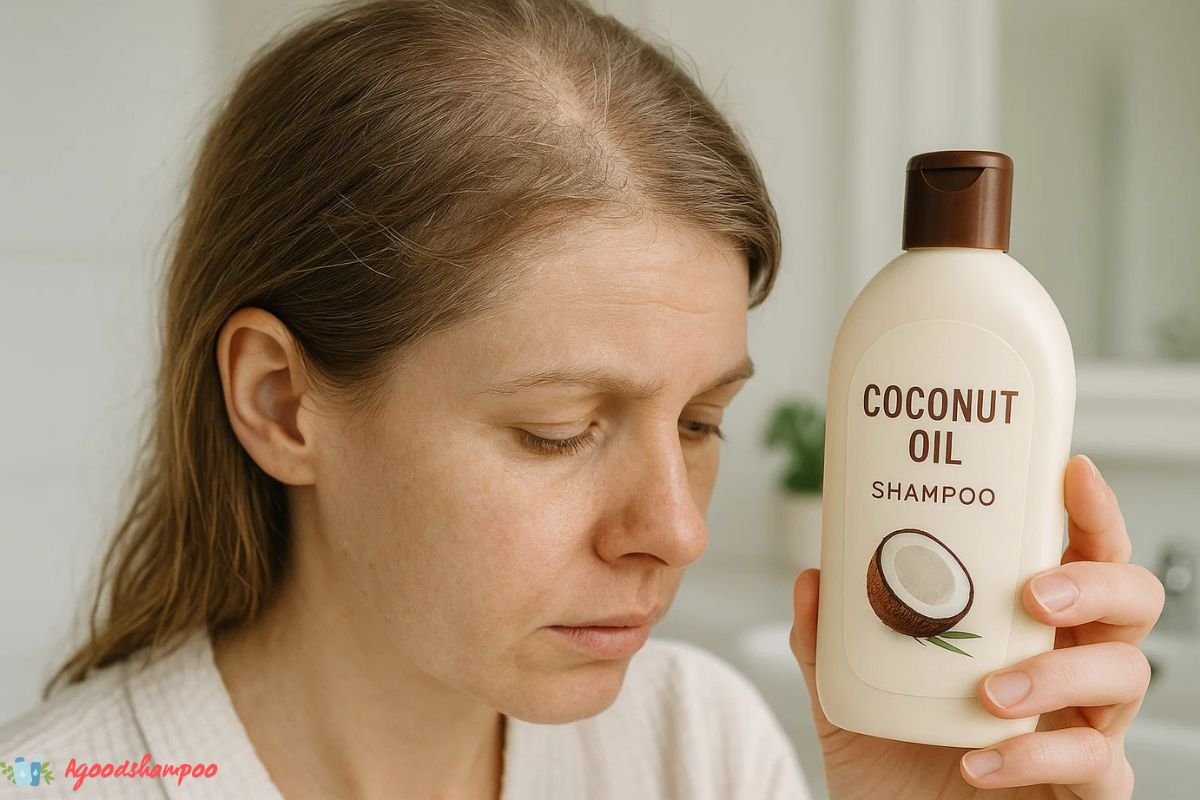
Is Coconut Oil Safe for Dry Scalp?
Generally, yes. It’s considered safe and gentle. But safety depends on two things:
How it’s used in shampoo. In most coconut oil shampoos, it’s part of a larger formula, not pure oil, so it’s lighter and rinses out.
Your skin type. If you have eczema or a history of breakouts around your scalp line, test patch first. Coconut oil is comedogenic for some people.
Quick Fact Box:
Over 70% of users with mild scalp dryness report softer, calmer skin after using coconut oil shampoo (based on consumer surveys by Healthline).
The Problem of Dandruff and Coconut Oil
Here’s where things get messy. Many people confuse dry scalp with dandruff, but they’re not the same.
Dry scalp = lack of moisture.
Dandruff = overgrowth of yeast feeding on scalp oils.
Coconut oil can sometimes feed that yeast. In fact, dermatologists warn that using heavy oils can worsen flakes if the underlying cause is fungal.
So if your scalp is flaking but also greasy? Coconut oil shampoo might not be your friend. In that case, you need a medicated shampoo with zinc pyrithione or ketoconazole, not more oil.
What is the Best Shampoo for Dry, Dry Scalp?
If your scalp is bone-dry and itchy, look for shampoos with:
Coconut Oil or Shea Butter (hydration)
Aloe Vera or Glycerin (moisture-binding)
Oat Extract or Panthenol (soothing and calming)
Sulfate-Free Cleansers (gentle, non-stripping)
Carolina’s Pick: A coconut oil–based shampoo paired with aloe vera. It hydrates but also calms irritation.
But remember: if your dryness comes with heavy flakes, you may need to alternate between coconut oil shampoo and an anti-dandruff shampoo.
Is Coconut Oil Shampoo Good for Dry Scalp Overnight?
This is one of those questions I hear often, people want a miracle overnight fix. The truth? Coconut oil shampoo isn’t meant to sit on your scalp overnight. Shampoo formulas contain surfactants (cleansers) that should be rinsed out.
If you want overnight hydration, go for pure coconut oil as a scalp treatment (applied lightly and washed out in the morning), not the shampoo itself.
Tip: Warm a teaspoon of organic coconut oil, massage gently into the scalp, cover with a silk scarf, and wash out the next day with a mild shampoo.
How Quickly Does Coconut Oil Increase Dandruff?
If coconut oil disagrees with your scalp, you’ll usually notice in a week or two, flakes, itching, or greasy buildup that doesn’t feel clean.
That’s why I always suggest a trial period. Use coconut oil shampoo twice a week for two weeks. If flakes get worse, switch it out.
How to Use Coconut Oil Shampoo for Dry Scalp
Here’s the safest routine:
Choose a sulfate-free formula. Harsh detergents cancel out coconut oil’s benefits.
Use lukewarm water. Hot water strips natural oils further.
Massage, don’t scratch. Let the shampoo sit for 1–2 minutes.
Condition the ends. Don’t overdo conditioner on your scalp.
Limit washes to 2–3 times a week. Over-washing = dryness.
Optional Boost: Once a week, add a few drops of pure coconut oil to your shampoo and mix before applying. This gives an extra hit of hydration without leaving residue.
Coconut Oil vs. Other Oils for Dry Scalp
Coconut Oil: Deep penetration, antimicrobial, but can worsen dandruff.
Jojoba Oil: Closest to scalp’s natural sebum, lightweight.
Argan Oil: Rich in vitamin E, great for shine and moisture.
Olive Oil: Heavy, occlusive, better for thick, coarse hair.
If coconut oil doesn’t work for you, jojoba oil shampoo is often a gentler alternative for scalp dryness.
My Real-World Testing
I’ve tested at least ten coconut oil shampoos over the years, from budget pharmacy brands to salon-grade lines. Here’s what I noticed:
On normal dry scalp clients, coconut oil shampoo improved comfort within 2–3 washes.
On flaky dandruff-prone scalps, it often made the problem worse.
On color-treated hair, it was soothing but sometimes too heavy if used daily.
So my verdict? Coconut oil shampoo isn’t a miracle cure, but it can be part of a smart scalp routine.
Final Verdict: Is Coconut Oil Shampoo Good for Dry Scalp?
Yes, if your dryness is caused by lack of hydration, not dandruff or yeast. Coconut oil shampoo hydrates, soothes, and protects the scalp barrier. But it isn’t universal. For some, it can backfire and increase flakes.
Think of it as a supportive friend, not the one-size-fits-all hero. Use it smartly, test your skin’s reaction, and always keep an anti-dandruff backup if your scalp leans that way.
Bottom Line: Coconut oil shampoo is safe, nourishing, and effective for many dry scalps, but the key is knowing your scalp’s real problem first.

Carolina Herrera: Cosmetics specialist & Hair Analyst. Specializing in hair treatments, Carolina provides thorough reviews and advice on choosing the best products for damaged or treated hair.

